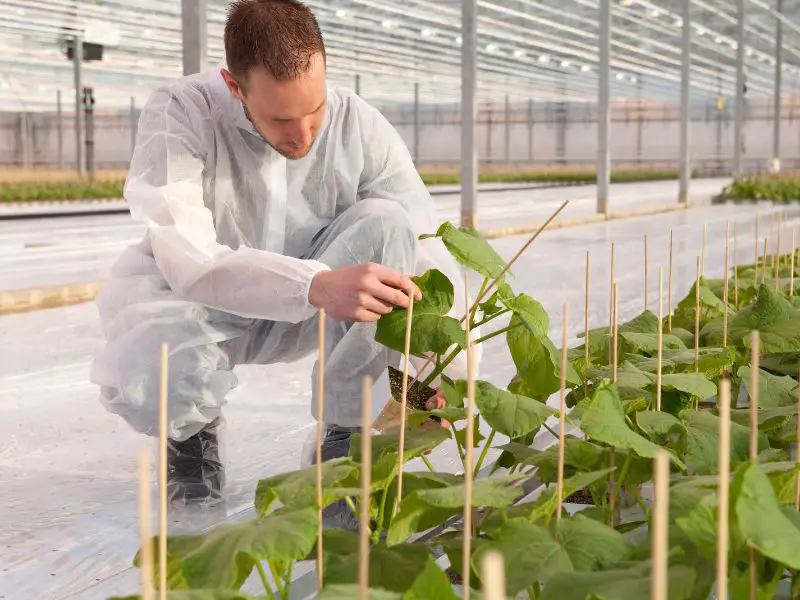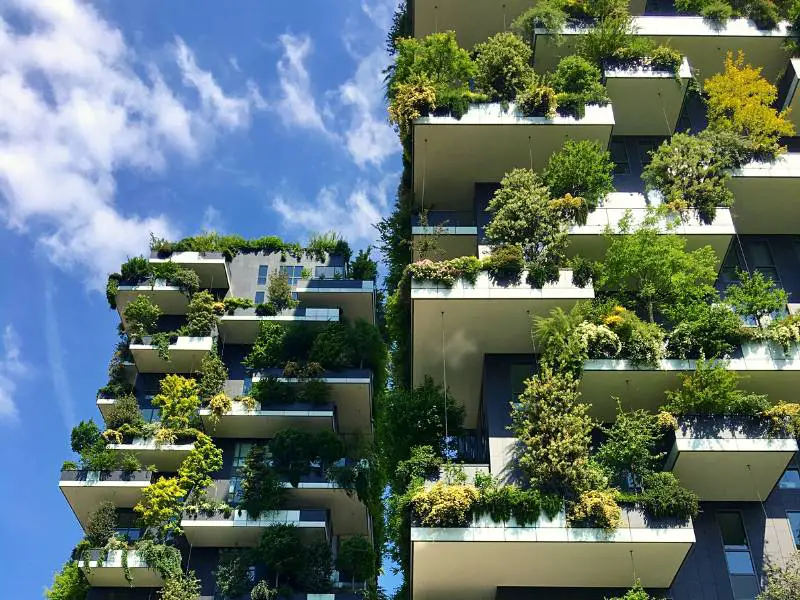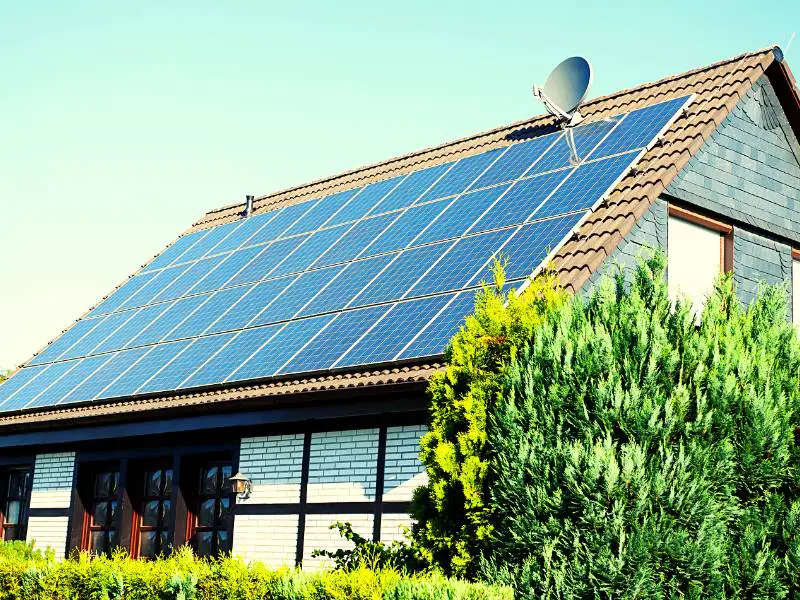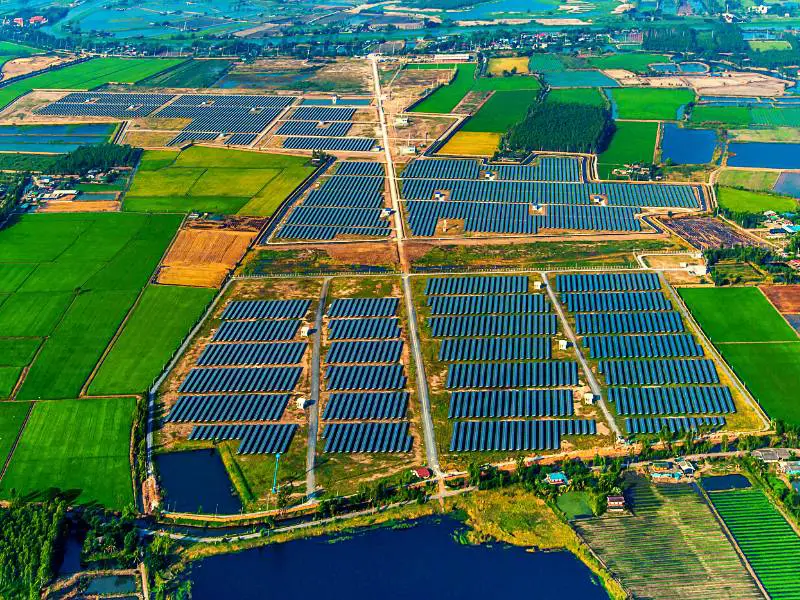Sustainable products and technologies have never been in higher demand. As we approach a turning moment in the fight against climate change, many innovators and corporations are treading up to build a greener future.
This is a list of what I think are the most interesting sustainable innovations happening in 2024. With these inventions, we can experience a better and more comfortable future. And our planet will surely thank us!

Efficient Waste Management and Sustainability
Modern companies are incorporating sustainable technologies to minimize waste and efficiently use raw materials, leading to more controlled and sustainable supply chains. The technology ensures a lower environmental impact through optimal resource utilization and recycling initiatives, significantly within device management, contributing to a cleaner and more sustainable ecosystem.
Innovative Business Models for Sustainability
The adoption of sustainable technologies and circular business models, especially in the plastics industry, offers immense opportunities. These models aim to eradicate waste, providing economic, societal, and environmental advantages, emphasizing the vast potential and opportunity in achieving net zero and fostering sustainability.
Carbon Management and Sustainable Development
Effective carbon management is crucial. Technologies like Carbon Capture and Storage (CCS) and other sustainable technologies are instrumental in managing carbon emissions during industrial processes. The focus on reducing carbon footprints through the reprocessing of single-use devices is also enhancing sustainability, aiding companies in meeting the growing demand for carbon reduction solutions.
Streamlining Supply Chains and Leveraging Cloud Services
Enhanced supply chain transparency and ethical resource management are pivotal for incorporating sustainable technologies for advancement. The integration of cloud services is facilitating companies in achieving sustainability goals, exemplifying the integration of technology for energy efficiency and waste reduction, and assisting companies in their green transitions.
Enhancing Energy Efficiency
Sustainable technologies are paramount for energy efficiency and minimizing environmental impact. Multinational corporations are incorporating advanced technologies and power management functions in products to enable smart energy consumption and promote environmental conservation, ensuring the simultaneous progression of technology and ecology.
Sustainable technologies are crucial for the harmonious development of technology and ecology. They are reshaping industries through innovative waste management, business models, carbon management, and efficient energy use. These advancements are not mere trends; they are necessities for ecological balance and sustainable future development.
Most Innovative Sustainable Technologies
Green Building Initiative
The Green Building Initiative (GBI) is a global initiative aimed at constructing environmentally friendly, resource-efficient structures. They provide a certification program for commercial buildings that comply with their environmentally-friendly objective. Its mission is to develop a global standard of best practices for green buildings and provide third-party evaluation tools for meeting sustainability criteria in construction.

“Green buildings are a testament to the harmony between humans and nature.”
– Mahesh Babu
Green and sustainable building initiatives are gaining popularity around the world. However, these building initiatives are not always quickly adopted by businesses and homeowners. Many find the high costs of green technologies to be prohibitive. But as they gain more traction through time, the more this initiative will become more accessible.
Groasis Waterboxx – Trees in Deserts
Pieter Hoff, a Dutch flower exporter, came up with the idea for the Groasis Waterboxx. The Groasis is a crop-planting technology that makes it feasible to produce crops in the desert while conserving water and other resources. It consists of an “intelligent bucket” made of recycled paper, which may germinate seeds, incubate saplings, and water plants, among other things. Compared to standard growth methods, it uses 90 percent less water and can be employed in some of its harshest regions.
It also takes up less space, as plots can have up to four crops, thanks to vertical “multiplexing,” which uses less water per plant than traditional farming methods.
Solar Glass That Powers Any Home
Solar glass can revolutionize the way we design and construct homes and commercial buildings. Renewable energy researchers at the University of Michigan are working on developing solar glass, a sustainable engineering project that has gained considerable attention in recent years. The solar glass would be capable of capturing and storing solar energy, among other things.
They can install this on the facade of a home or office building, where they would collect and store energy generated by natural sunlight. The panels could supply power to an entire building or its main façade and provide energy-generating services. Some researchers estimate that these panels could save up to 30 percent of the energy consumed by a typical home in an area with moderate climate conditions.

While the prices for solar glass are still rising, it’s just a matter of time before they become cheaper and as the production process becomes more widespread. This could also be a game-changer for renewable energy in low-income countries across the globe, where millions live without electricity.
The Veganbottle
The Veganbottle, by Lyspackaging, showcases sustainable technologies at their best. Made entirely of natural bioplastic, it has the potential to oust traditional plastic bottles. Every component, from the top to the wrapper, is biodegradable. The bottle, crafted from sugar cane extracts, champions environmental friendliness. Sugar cane, an exemplar of sustainable technologies, uses minimal water.
The Veganbottle’s production, harnessing sustainable technologies, is more energy-efficient than standard methods. With a shelf life surpassing regular plastic bottles, it can endure up to four years in a freezer. This eco-friendly bottle embodies the benefits of sustainable technologies: environmentally sound and cost-effective.
Solar Powered Roadways
Could roadways be powered entirely by solar energy? Yes.
Imagine roads that receive ample sunlight during the day and night, even in cloudy weather. With the use of sustainable technologies, the energy produced will then be stored back into the grid to power buildings and lighting throughout the night or even during high demand. In this way, surplus energy is created, making operations more efficient using sustainable technologies.
This solar road in France, which integrates sustainable technologies and is made up of approximately 2,880 m2 of solar panels, was one of the world’s first. It was constructed using Colas’ Wattway technology, a pioneering sustainable technology, and ran for one kilometer through Tourouvre-au-Perche.
Leveraging sustainable technologies, the solar highways generate enough electricity to power the street lights within the small community. It was built at approximately 5 million Euros, and thanks to sustainable technologies, around 2,000 motorists use it every day.
Reedi – Solar-Powered Battery
Solar-powered batteries, underpinned by sustainable technologies, are proving to be a game-changer in addressing energy poverty. A staggering 85 million Nigerians lack access to grid power, marking the largest energy access deficit on the planet.
In response to this challenge, Olubenga Olubnajo, a native of Nigeria, has introduced Reedi. This compact, solar-powered battery is designed to charge electronics and can be rented at a nominal fee of 50 cents per day. Capable of producing 200 watts of electricity every hour, Reedi is easily accessible at local corner shops. Once depleted, consumers can return and recharge the battery.
These solar-powered batteries, powered by sustainable technologies, are not only convenient but also incredibly cost-effective. Their functionality mirrors that of larger solar power systems. Inside, the batteries house multiple lithium-ion cells or other metal oxides. Sunlight charges these components, which are then transformed into electricity. For those who own these batteries, it presents a unique revenue stream. For electricity users, it offers a feasible method to offset some of their energy expenses.
Robotic Bees
B-Droid is only one of the numerous projects to develop robotic bees capable of pollinating crops as successfully as biological bees. B-Droid’s objective is to assist in raising the wild bee population by assigning robotic bees pollination jobs that need little sustenance and little work.

“The RoboBees project is an exciting example of how engineering innovation can potentially be used to overcome some of the world’s most pressing challenges.”
– National Science Foundation (NSF)
B-Droid, developed by academics at the University of Warsaw, envisions a management platform and swarms of autonomous and semi-autonomous robots capable of successfully identifying and pollinating crops. Hopefully, this sustainable invention does not turn into one of Black Mirror’s episodes.
Sundrop Farms
Sundrop Farms is well-known for pioneering a range of sustainable agricultural technologies that use fewer scarce resources than traditional farming methods, such as organic farming. Embracing sustainable technologies like concentrated solar power and thermal desalination has been essential to their success.
In Port Augusta, South Australia, they utilize sustainable technologies to irrigate their crops with water from the Spencer Gulf. This water is desalinated using sustainable technology before being used to irrigate their fields. Sunlight, a sustainable energy source, provides all the energy needed for this desalination process and the other functions on the farm.

Gum Wheels
Hugo Maupetit and Vivian Fischer, design students from Nancy, France, incorporated sustainable technologies into their innovative project. They came up with a creative solution to collect wasted chewing gum by encouraging people to attach their old gum to a notice board rather than dropping it on the floor.
Once a sufficient number of used gums had been collected, they were melted down and formed into wheels. Vivian said: “The idea was to combine environmental awareness with a fun and engaging way of collecting gum, showcasing how sustainable technologies can be integrated into everyday solutions.”
Author’s Note
The future of sustainability is looking brighter than ever… if we keep inventing!
The switch to sustainable energy resources is far from a simple task. The process involves many complex factors, such as environmental considerations and industrial realities, which are often difficult to balance against one another.
However, many organizations and countries worldwide are making great strides toward making the world a better place for future generations. Below are some articles that will make you realize how happy and peaceful you can be if you live a green lifestyle.
- Why Going Green Makes You Feel Happier in Life
- Money and Health
- Everyday Habits For A More Sustainable Lifestyle
We hope that this list will motivate you to use more sustainable technologies. Thank you for reading!


9 thoughts on “A Look at the Top Sustainable Technologies: Sustainability’s Bright Future”